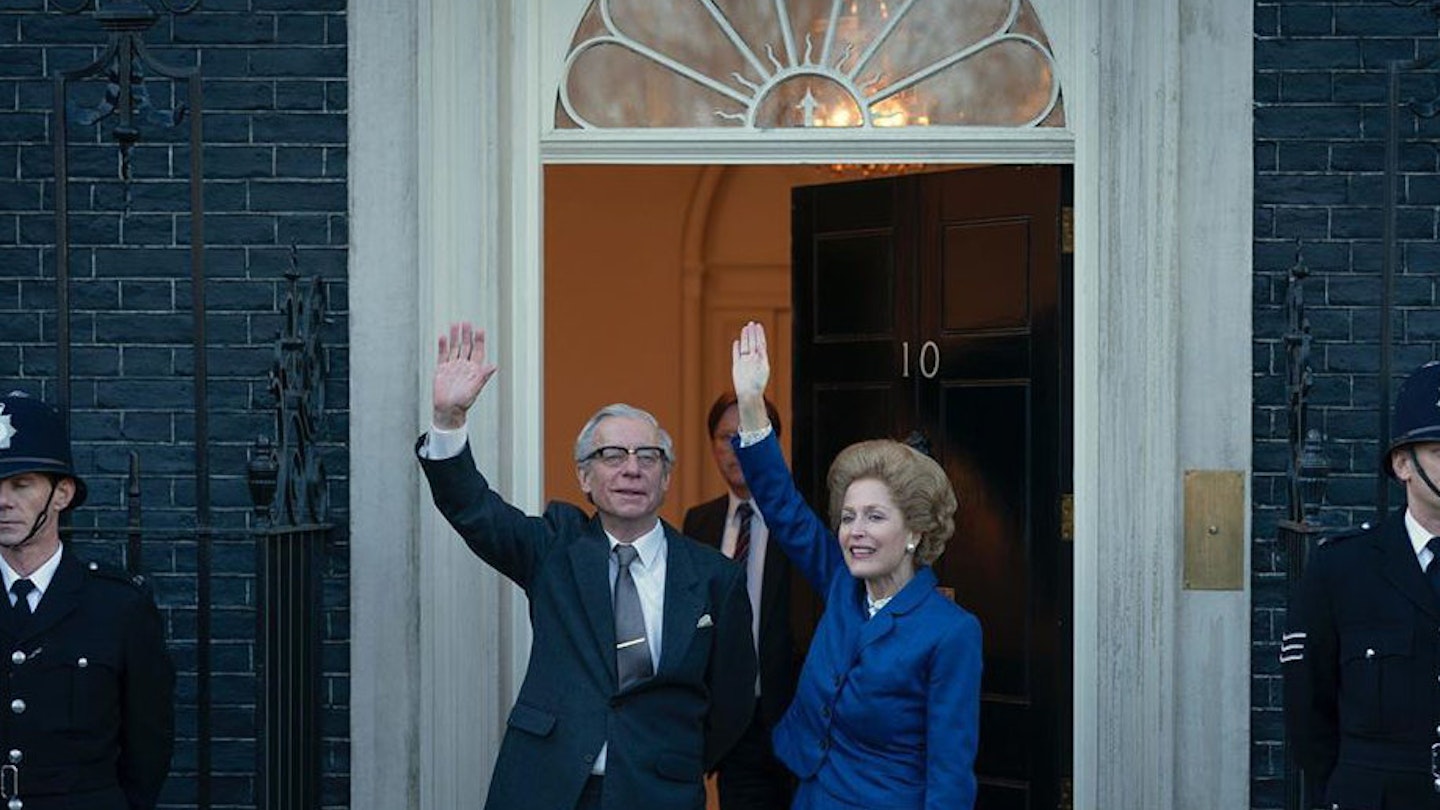You might recognise Gillian Anderson from The Fall or The X-Files, but now the American actress is playing Prime Minister Margaret Thatcher in the new series of The Crown on Netflix.
The new series picks up at the tail end of the seventies - after a period of great social unrest in the UK - Margaret Thatcher becomes Britain’s first female Prime Minister.
Can you give us an overview of what viewers can expect from Season 4 of The Crown?
Gillian: In episode one we see Margaret Thatcher win the election and in episode ten we see her leave office. In between, the series observes her relationship with the Queen through various landmark events including the cabinet reshuffle, the Falklands War and the sanctions on South Africa.
How was the experience of joining the cast of The Crown?
Gillian: Extraordinary. It’s such a grown-up experience all around. More like a film set than a tv show. There is deep respect on set for the work, which is surprisingly not a given in the industry. The cast notoriously gets along very well and it feels very much like a home of sorts. I already miss it.
How do you think The Crown manages to find the balance between showing audiences the rich private lives of the Royals against a backdrop of such famous historic moments?
Gillian: Honestly, I don’t know how Peter and his gang pull it off year after year. I do know that they try a few dozen scenarios before they settle on which historical event and which Royal it is experienced through, and somehow, they manage to make it unpredictable and not soapy. I’m simplifying the process here and I don’t mean to. What does Thatcher make of the Queen and the Royal family? Mrs T is incredibly respectful of and slightly in awe of the Royal family. Despite the differences in how they by their nature handled situations, Mrs T continues to revere the institution and the Queen within it, as long as she doesn’t get in the way of the work Mrs T intends to do.
Is Thatcher a similar character to Elizabeth or very different?
Gillian: They have many similarities- they are the same age, have a strong faith, and are simultaneous heads of state. But where the Queen leans back, Thatcher leans in; where the Queen stays mum, Thatcher makes very clear her opinions; where the Queen does nothing, Thatcher takes action.
Read more: This is what the Queen really thinks of The Crown
How do those similarities and differences become apparent?
Gillian: They become clear in how the Queen would have Mrs T respond to the Falkland situation as opposed to how she does. The Queen, had she had the choice, would have kept Thatcher’s original cabinet because they resembled precisely what she finds comfort in the cabinet that Thatcher almost entirely sacked. And they had very different views about how sanctions against Apartheid South Africa should be handled- so different that the tensions between them became headline news which was/is quite unprecedented. Thatcher was, of course, a very polarising figure during this period in history, yet the series opens the doors to her private life which is seemingly very different and softer as we see her as a mother.
How did you navigate between the public and the private face of Thatcher?
Gillian: Well, there’s one episode that deals with Thatcher as a mother - an episode that delves into her state of mind when her son Mark was missing for a few days while racing in the Paris-Dakar car rally and how her feelings for Mark seem to differ from her feelings for her daughter Carol. We also see her making shepherd’s pie for cabinet ministers in the flat and her wonderfully close and supportive relationship with her husband Dennis. All aspects of her that (unless you’ve seen the latest BBC documentary on her) you might not have considered would be a part of her life experience as a woman on the world stage.
How has your experience of playing Margaret Thatcher influenced your impressions of her?
Gillian: Well, I think said documentary definitely affected how I played her. I really knew so little about her before I started my research and certainly have a much stronger opinion of the woman as a whole as opposed to solely the woman prime minister who had such a monumental effect on the United Kingdom and beyond, for better or for worse.
Is there added pressure for you when you take on the role of an iconic personality?
Gillian: Definitely, and I have to say, for Thatcher more than any iconic persona I have played before. She had such a specific way of speaking and moving and divided people so thoroughly that showing all sides of that kind of character becomes even more vitally important and challenging.
What research and preparation did you do for this part?
Gillian: I think I pretty much watched everything there was to watch on her. Every doc – many many interviews. Read a few books including a good chunk of the Charles Moore biographies. The Crown has an exemplary research team and if you want something, they will get a hold of it for you. So whether it was them handing me an initial Thatcher pack or me asking for details on every last cabinet member and what their specific roles and leanings were, or even – is there archive footage of this particular joke she told while canvassing- the team was there to provide.
Most read: Meet the actress playing Princess Diana in The Crown
Most read: Queen Elizabeth II's finest moments
